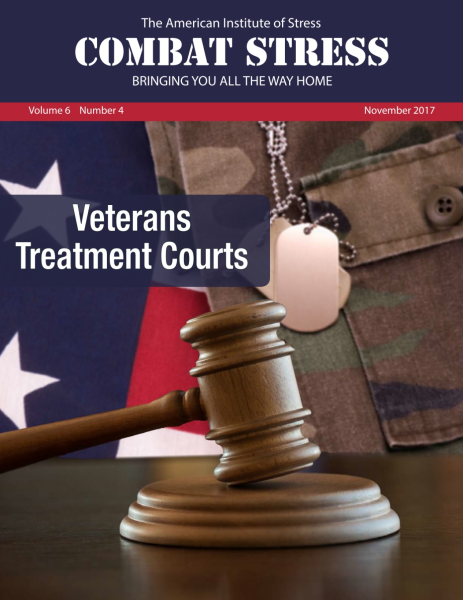NADCP's Justice for Vets, in partnership with PsychArmor, has created a library of online modules to provide training on the critical fundamentals necessary to incorporate mentoring into a veteran's treatment court program. These short modules cover the core components of effective mentoring and are intended for veteran mentors, mentor coordinators, and veterans treatment court staff of any experience level.
Four courses for veteran mentors are available today, with more coming soon!
Available courses:
- What is a veteran's treatment court?
- Roll of a veteran mentor
- Communication skills
- And confidentiality
Although there are now over 400 veterans treatment courts (VTCs) in the country, there have been few studies on participant outcomes in functional domains. Using national data on 7931 veterans in the Veterans Affairs (VA) Veterans Justice Outreach program across 115 VA sites who entered a VTC from 2011 to 2015, we examined the housing, employment, income, and criminal justice outcomes of VTC participants; and identified veteran characteristics predictive of outcomes. VTC participants spent an average of nearly a year in the program and 14% experienced a new incarceration. From program admission to exit, 10% more participants were in their own housing, 12% more were receiving VA benefits, but only 1% more were employed. Controlling for background characteristics, a history of incarceration predicted poor criminal justice, housing, and employment outcomes. Participants with property offenses or probation/parole violations and those with substance use disorders were more likely to experience a new incarceration. Participants with more mental health problems were more likely to be receiving VA benefits and less likely to be employed at program exit. Together, these findings highlight the importance of proper substance abuse treatment as well as employment services for VTC participants so that they can benefit from the diversion process.
Tsai, Jack et al. “A National Study of Veterans Treatment Court Participants: Who Benefits and Who Recidivates.” Administration and policy in mental health45.2 (2018): 236–244. PMC. Web. 16 Mar. 2018.
This issue presents information by key personnel from across the nation who have helped to build and to currently staff Veterans Treatment Courts (VTCs). These courts have been growing in number and locations across the United States since 2008, yet remain largely unknown as an alternative way for veterans whom have been charged with non-capital crimes and who agree to undergo treatment in lieu of incarceration. They offer veterans charged with crimes a second chance, a full compliment of resources on their path to recovery, support teams, and a means for of having their charges removed so they may resume their place and respect within their communities.
Within this issue are the impassioned voices of long-time veteran advocates who have worked tirelessly in seeking justice in our courts these include attorneys, judges, mentors, and nonprofits. Each describe their history of service to veterans their involvement in veteran treatment courts, and the need for expansion of community understanding and involvement.
“Veterans Treatment Courts are relatively new,” said Kim Ball, Director of JPO. “We hope that this report, the most in-depth on this topic to-date, will help courts continue to improve and meet best practice standards.” (Nov. 17, 2016)
This letter includes:
- Links to the 2015 Survey Results
- A link to a 2008 Study
- Links to the webinar about the report
- and more





